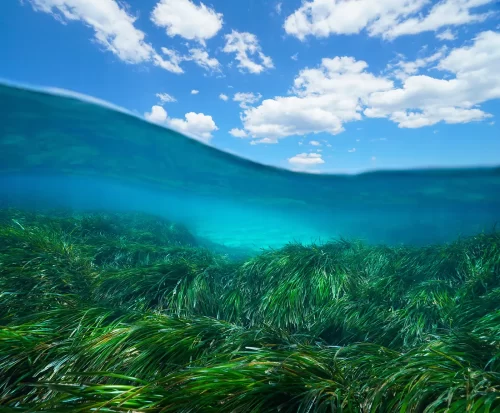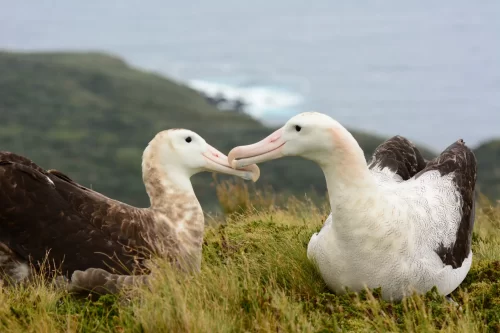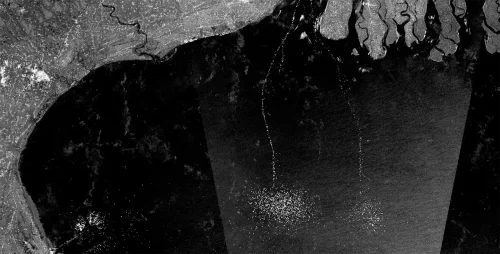
© DVIDS
The Issue
Illegal, unreported and unregulated (IUU) fishing remains a major threat in the Gulf of Guinea, including the waters off the coast of Ghana. Fish stocks are being depleted as a result of large-scale operations carried out by vessels originating primarily from Asia and Europe. This is threatening the livelihoods of small-scale fishers as well as important marine biodiversity. IUU fishing costs the country an estimated US$23.7 million in lost revenue annually.
The European Commission issued Ghana with two separate “yellow cards”—one in 2013 and one in 2021—under the framework of the European Union’s IUU Fishing Regulation. This formal warning threatened a ban on exports to the EU if the country failed to clamp down on IUU fishing, including illegal transshipments and landing of IUU seafood at its ports.
Our Work
Over the last few years, and in collaboration with TM-Tracking, we have provided intelligence to the Ghanaian government to help strengthen monitoring, control, surveillance of their waters and also support enforcement operations.
In 2020, our data and analysis supported a 36-hour fisheries patrol operation by the Ghanaian Navy, assisted by the United Nations Office on Drugs and Crime and Skylight, a maritime monitoring and analysis platform from the Allen Institute for AI. In total, 14 industrial vessels were intercepted on suspicion of illegal activities. Of these, one was detained and three were given administrative fines.
This joint effort represented a new opportunity for collaboration in Ghana around intelligence-led, at-sea patrol—one which is being cultivated through the work of the Joint Analytical Cell.
We continue to work with our partners in Ghana and other countries in West Africa to provide transparent data, analysis and intelligence to combat IUU fishing and uphold the rights of small-scale fishers.
“The real success of the first combined operation was the establishment of trust by Ghanaian maritime law enforcement agencies in the reliability of the information provided by the private partners.”
UNODC’s Global Maritime Crime Programme coordinator

